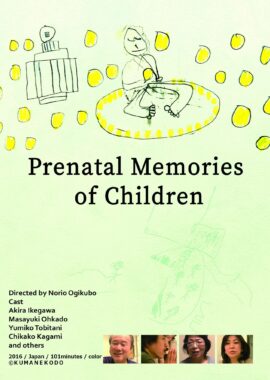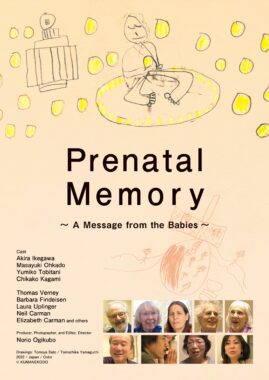History of Prenatal Memory
“Rebirth of Katsugoro” by Atsutane Hirata 1823
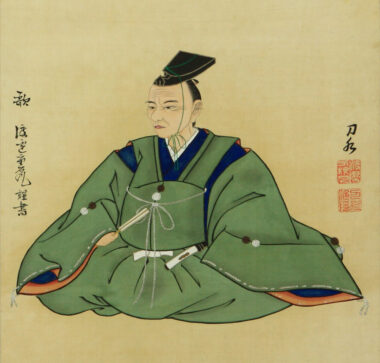
World’s recorded the first reincarnation case study of nine-year-old Katsugoro remembering his past life.
The book, Rebirth of Katsugoro was written by Atsutane Hirata in 1823. This book is the first piece of literature mentioning Prenatal Memory written in Japan. Later, it inspired the University of Virginia to conduct studies on memories of a previous life.
“Confessions of a Mask” by Yukio Mishima 1949
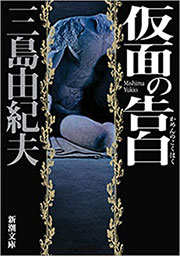
In Japanese literature, Yukio Mishima, at the beginning of “Confessions of a Mask, describes:
This can be thought of as a direct expression of my actual experience.
Study of sounds inside of the womb 1975
Professor Hajime Murooka Department of Obstetrics and Gynecology, Nippon Medical School.
In his research in 1975, Prof. Murooka HAJIME, Department of Obstetrics and Gynecology, Nippon Medical School, recorded the sounds in the uterus and studied whether the newborn remembered those sounds.
“The Secret Life of the Unborn Child” by Dr. Thomas R. Verny & John Kelly
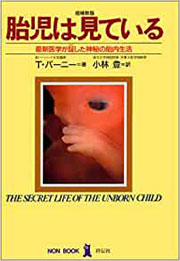
The first book on Japanese prenatal memory was written by Dr. Thomas Verney titled “The Secret Life of the Unborn Child ”, and it was sold in Japan in 1987.
“The Mind of Your Newborn Baby” by David Chamberlain, Ph.D.
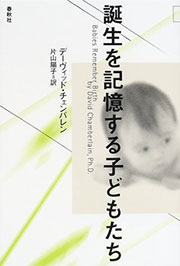
Dr. Chamberlain published his book in Japanese one year after the publication of Dr. Thomas Verney’s book. The publication of Dr. Verny and Dr. Chamberlain’s books brought the Prenatal Memory boom in Japan.
Can a Fetus Hear Music? by Kiyoshi Ohshima, Iturou Yamanouchi, Masaru Ibuka 1983 and 1988
Joint research by Kiyoshi Oshima, Itsuro Yamauchi, and Masaru Ibuka (one of the founders of SONY). In an experiment with monkeys, they play the sound through the womb to measure the skin electrode’s reaction to the fetus. They prove that the auditory cortex of the brain responds to sound through this experiment. Is the fetus listening to sound? The answer is, “Yes”
This description is written in books released in 1983 and 1988.
Study on Prenatal Memory and Possibility of Learning (1989 – 1989)
” A study of prenatal memory and learning potential”
Report on the results of the scientific research grants from the Ministry of Education, Culture, Sports, Science and Technology (1988-1989)
The government-funded research on Prenatal Memory was conducted over the two years from 1988 to 1989… It was a study of the so-called imprinting phenomenon, whether babies remember the sounds when they were in the womb after their birth. The result and the conclusion were “Yes”.
The Dawn of Prenatal Memory in Japan 1992
- The memory of birth 1992 Shunjusha editorial department
- The secret of the fetus 1992 Takumi Manai
- TV program “Wonder Zone” Yomiuri TV 1992.7.20 broadcast In 1992, books and a TV program on uterine memory were released all at once in Japan.
Aum Incident – Tokyo subway Sarin Attack 1995
On March 20th, 1995, members of Aum Shinrikyo released Sarin on the Tokyo subway.
The momentum of Prenatal Memory suddenly waned with this Tokyo Attack. After this incident, the spiritual contents including Prenatal Memory was concealed by the media.
CREATING THE VALUE OF LIFE by Fumihiko Iida 1996
“Creating the Value of Life” written by Professor Fumihiko Iida came out the year after the Aum Incident and informed the Japanese medical practitioners of the existence of the soul.
The book became very popular since it was published by a professor at Fukushima National University, which is a university spreading materialistic ideology in Japan.
Professor Fumihiko Iida himself has some mysterious experiences.
The English version is available online and you can download it for free.
The Memory of Mother’s Womb: The Secret of Birth Trauma by Makoto Shichida, Yoji Tsunabuchi (1998)
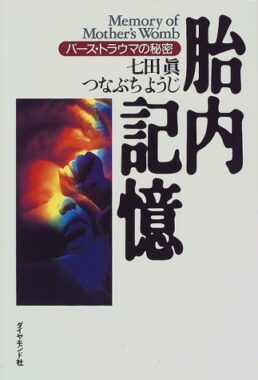
The author of this book, Makoto Shichida is the founder of the Shichida Method. He shared in this book that the moment of birth and the memories and experiences in the womb could cause trauma. It continues to influence the formation of the personality. He tells us about birth trauma and reexamines the future of children and the meaning of life.
Prenatal Memory by Akira Ikegawa (2008)
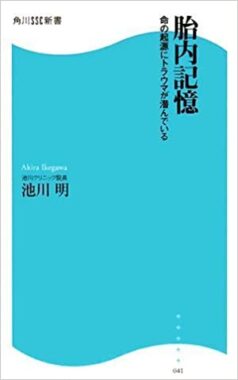
The joys, pains, and difficulties of life that we have today all began in the womb. In the past, the unborn baby was thought to be immature and unaware, but recent research has shown that the five senses, including touch, hearing, and smell, are already functioning in the womb, and that the baby has both perception and will. Moreover, the environmental disparity while in the mother’s womb has become a birth trauma that has a profound impact on the rest of life. Based on the astonishing testimonies of many children who talk about their memories in the womb, this book examines the ways in which families and society can break the cycle of trauma.
Documentary Film: Prenatal Memory (2016 & 2022)
Description
Interviews with hundreds of children capture the continuum of their conscious awareness before and after birth, giving us intriguing insights into why we are here and what our mission may be in this world.
Dr. Akira Ikegawa runs an obstetrics and gynecology clinic in Yokohama City, Kanagawa Prefecture, and also gives lectures throughout Japan as a leading researcher on Prenatal Memory. He asked children who have Prenatal Memory about the reasons why they were born, and they always answer, “To help people” and “To make mothers happy by their birth and presence.”
The camera captures the scene during some actual research on Prenatal and Pre-birth Memory when Professor Masayuki Ohkado at Chubu University and Dr. Akira Ikegawa conducted interviews with children and their mothers. Please feel and reflect with the researchers on how interpreting Prenatal Memory affects the bond between mother and child, and between siblings.
The second half of the film is about the developments in the field of Prenatal Memory research by overseas researchers. Norio Ogikubo accompanied the Prenatal Memory Global Project team from Japan to cover the APPPAH (Association for Prenatal and Perinatal Psychology and Health) International Congress which was held in the US in 2019.
Ikegawa’s Conference Presentation & Achievements

- Prenatal Memory Kanazawa Ward Medical Association Academic Workshop – 2002
- Nursery-school Children’s Memory During the Fetus Term and/or the Delivery Term Was Investigated by a Questionnaire- FIGO Congress 2003 in Santiago, Chile(The International Federation of Gynecology and Obstetrics)
Ikegawa read the Japanese version of “CREATING THE VALUE OF LIFE” and realized that the fetus has consciousness during pregnancy. And he conducted a questionnaire survey with the cooperation of pregnant women who visited for their checkups with support from nursery schools, maternity hospitals, midwifery clinics, and other organizations.
He has presented his findings and announced the results at the Medical Association Research Group and the World Obstetrics and Gynecology Society.
Joining APPPAH
Hideko Sato introduced me to David on 17 Jul 2003 and Joined APPPAH
Just before the presentation of the international conference, I received an email from Dr. David Chamberlain have invited Ikegawa to join APPPAH in 2003.
Akira Ikeagwa’s article is available at https://birthpsychology.com/
Investigation by Questionnaire Regarding Fetal/Infant Memory in the Womb and/or at Birth
Publication info: Journal of Prenatal & Perinatal Psychology & Health 20. 2 (Winter 2005): 121-133.
Prenatal Memory Education Association, November 2017
We have established the Prenatal Memory Education Association in November 2017 with the purpose to spread the Prenatal Memory concept to the world.

